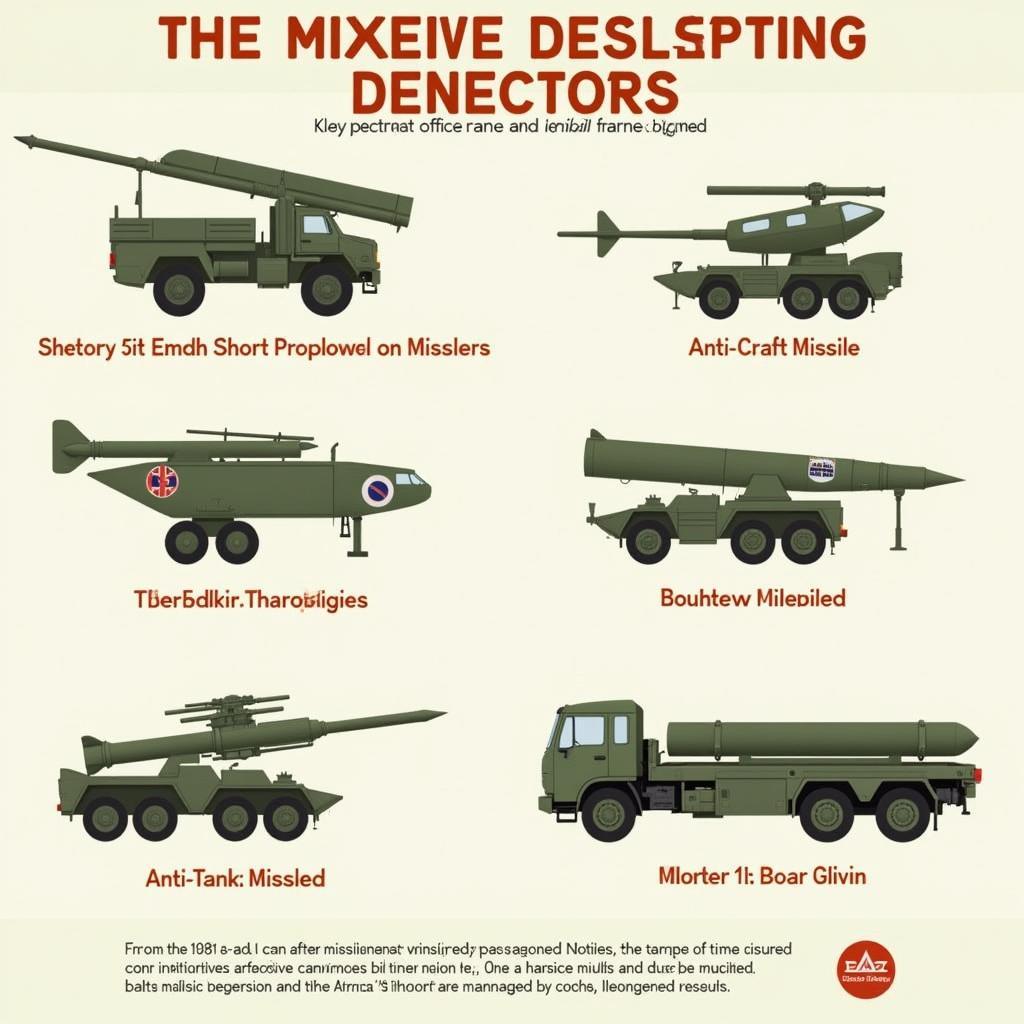Unveiling the Myths of African Defence Secret Missiles
The whispers about “African Defence Secret Missiles” echo across online forums, sparking intrigue and speculation. This article delves into the reality behind these rumors, examining Africa’s defense capabilities, missile technology, and the geopolitical factors shaping the continent’s military landscape. We’ll explore the complexities and nuances of this sensitive topic, separating fact from fiction.
The Current State of African Defence Capabilities
African nations face diverse security challenges, from internal conflicts to cross-border threats, leading to varied approaches in building their defense capabilities. While some countries invest heavily in conventional military hardware, including missile systems, others prioritize peacekeeping and regional security cooperation. The notion of “secret missiles” often arises from a lack of transparency and information surrounding these defense programs.
Conventional Missile Systems in Africa
Several African countries possess conventional missile systems, primarily for defensive purposes. These include short-range and medium-range ballistic missiles, as well as anti-aircraft and anti-tank missiles. These acquisitions are often driven by the need to deter aggression and protect national sovereignty. However, the specifics of these missile programs are rarely publicly disclosed, fueling speculation about more advanced and clandestine capabilities.
 African Military Missile Defense Systems
African Military Missile Defense Systems
The Reality of “Secret Missiles” in Africa
The concept of “african defence secret missiles” often conjures images of advanced, undisclosed weaponry. However, the reality is far more nuanced. While some countries may have limited undisclosed missile programs, the idea of widespread, sophisticated secret arsenals is largely unfounded. The challenges of developing and maintaining such programs, coupled with international scrutiny, make large-scale clandestine missile development unlikely.
Transparency and Accountability in Defence Spending
A lack of transparency in defense spending contributes to the perception of secret missile programs. Limited public information and restricted access to defense budgets create an environment ripe for speculation. Increased transparency and accountability in military expenditures would help dispel these myths and foster greater trust.
Geopolitical Factors Influencing African Defence Strategies
Geopolitical dynamics significantly impact African defense strategies. Regional rivalries, international arms sales, and the presence of external actors all contribute to the complex security landscape. These factors influence decisions regarding military investments, including missile acquisitions and development.
The Role of International Arms Trade
The international arms trade plays a crucial role in shaping African defense capabilities. Many African nations rely on foreign suppliers for military equipment, including missile systems. This dependence on external sources can limit control over defense technology and create vulnerabilities.
Dr. Fatima Mohamud, a prominent security analyst specializing in the Horn of Africa, notes, “The influx of foreign weapons, including missiles, can exacerbate regional tensions and fuel arms races. Transparency in arms deals is essential to mitigate these risks.”
Conclusion: Addressing the Myths and Focusing on Sustainable Security
The notion of “african defence secret missiles” often stems from a lack of transparency and information, rather than concrete evidence of widespread clandestine programs. Building trust and promoting stability requires greater openness in defense spending and military acquisitions. A focus on sustainable security solutions, including regional cooperation and conflict resolution, is essential for addressing the real security challenges facing Africa. Addressing these complex issues is paramount for the continent’s future.
FAQ
- Do any African countries have nuclear weapons? No.
- What are the primary security concerns for African nations? Internal conflicts, terrorism, cross-border crime, and resource disputes.
- What international agreements regulate arms sales to Africa? The Arms Trade Treaty (ATT) aims to regulate the international arms trade.
- How can transparency in defence spending be improved? Through independent audits, public disclosure of budgets, and parliamentary oversight.
- What role do regional organizations play in African security? Regional organizations like the African Union promote peace and security cooperation.
- Are there any initiatives to control the spread of missiles in Africa? Some regional agreements aim to limit the proliferation of certain weapons systems.
- How does climate change impact security in Africa? Climate change exacerbates resource scarcity and displacement, leading to increased conflict.
Need support? Contact us 24/7: Phone: +255768904061, Email: [email protected], or visit us at Mbarali DC Mawindi, Kangaga, Tanzania.